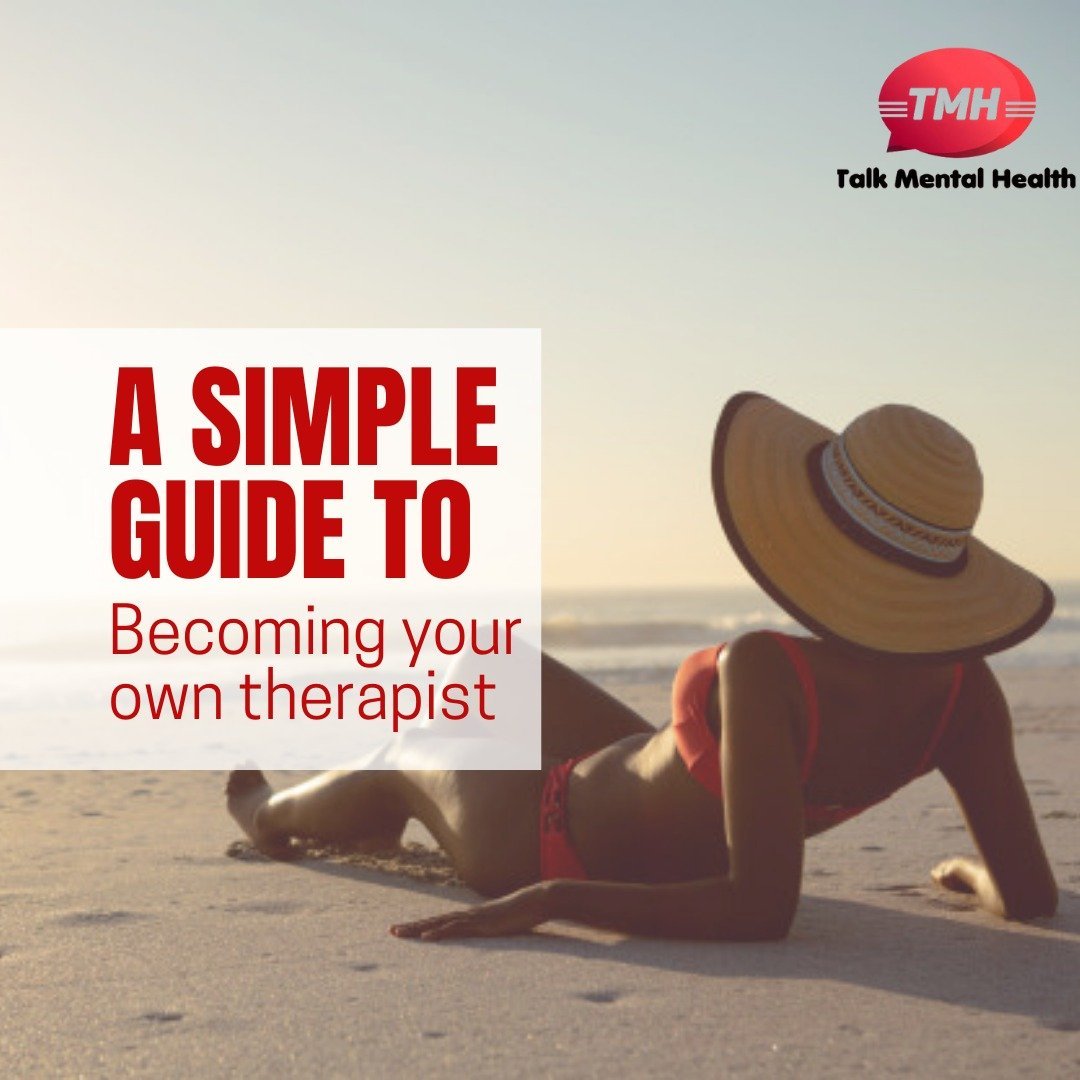Therapy is an important part of everyone’s mental health journey. You do not need to have mental disorders before you consider going to see a therapist. Some of the reasons people book an appointment with a therapist includes when they observe they’ve been constantly having negative thoughts; they recently lost a job or a loved one; they are trying to navigate changes in their life; constantly slip into unhealthy habits like overeating, drug/alcohol use; or when they realized that they are beginning to be managed by their emotions instead of the other way round. You may think that because you aren’t experiencing any of these, you do not need therapy. But see, if you just want to talk to someone to help you process your thoughts with an unbiased perspective? Then you should also be booking a session with a therapist.
The purpose of this article is to talk about how you can become your own therapist. With the shocking ratio of 1.5 psychiatrists available to over 1 million Nigerian citizens, it is expedient that you know how to care for your mental health.
A typical therapy session is a problem-solving session. You go into this session expecting to come out feeling better and equipped with solutions to bring relief to the current situation you’re facing. It is a period where you can pour out your thoughts, and with the help of your therapist, you process these thoughts, and identify possible solutions to improve your circumstances. This may take just one session, other times depending on the issue being tackled and how cooperative you are with the process it could take weeks, months or years.
The tips I will be sharing are routines you can input into your daily/weekly/monthly self-care calendar to help you check in with yourself. This does not undermine the place of seeing a licensed therapist.
Let’s dive in:
- Schedule a specific time/day when you can be with yourself undisturbed
Before you visit a therapist, you would need to call to book a session with them. They give you a day and time to come in for the session. Similarly, you have to book a time with yourself. Do you want it to be at 5am in the morning or the hour before you go to bed? Do you want it to be a daily thing or something you do during the weekends e.g. Sunday afternoons? How many minutes are you willing to allot to this exercise? A typical session at Talk Mental Health (TMH) lasts for an hour. But you could make your personal session go for 15/30/45/60minutes – whatever works for you and is realistic for your schedule. You also want to identify where you would like to be e.g. a quiet spot in your house, your garden, go for a walk, book a hotel room or a walk by the beach. Anywhere you can process your thoughts undisturbed and relaxed.
- Get a journal, or any writing pad and pen or a voice recording device
During therapy, as the therapist engages with you, he/she takes notes both during and after the session. So you also want to document your thoughts. You want to pour them into black and white, so you can view and process them as objectively as you can. Depending on what issue you want to tackle e.g. Your recent outbursts on your spouse, or level of job performance or your constant burnout, you can use the 5W&1H-problem-solving method. This is a very simple tool for deconstructing seemingly complex problems. I first learnt about it from a textbook I bought in secondary school. This method asks the What? Why? Where? When? Who? And How? Questions. For the case about constant outburst on your spouse/child, you want to ask yourself what triggers my outburst? Why am I responding to it with an outburst? Where does this usually happen? How can I respond better next time? Etc. Write your responses in your journal or record in a voice note
- Be honest with yourself and accept the facts you uncover
I said earlier that the duration of therapy could depend on how cooperative you are with the therapist and that rests on how truthful you are. He/she can only work with what you say and the solutions can only be effective if you shared truthfully. Now that you are your own therapist, you don’t want to lie to yourself. You know when you’re deceiving yourself. So please don’t. Yes, some truths may hurt but don’t deny or ignore, write it down and accept the facts before you. Acceptance is an acknowledgement of the facts, with all value judgments suspended. You neither approve nor disapprove—you accept. For example, the statement “I accept the fact that I’m out of shape” does not mean “I’m out of shape and that’s perfectly OK with me.” It means “I’m out of shape and I know it. I may not like it. In fact, sometimes I may feel like a roundtable. But right now, I’m putting my feelings aside, editing out value judgments, and just facing the bare facts.”
- Create an action plan
After going through the tips above and asking yourself the “How?” question, you may identify possible solutions you can begin to implement. This can involve starting a gratitude journal to appreciate yourself more and all the tiny progress you’re making; deliberately doing things that make you feel happy e.g. spending more time with loved ones, travelling, gardening, volunteering for a good cause etc; writing your own positive affirmations to counter negative self-talk; signing up at a gym or yoga studio; getting an accountability partner; practicing relaxation techniques for those times life throws its challenges at you; allowing yourself not to fret over things that you cannot control; improving your sleeping hygiene; or maybe reaching out to a professional therapist for help.
Visiting a therapist and administering self-therapy is not an “either…or” situation i.e. either visit a therapist or do the therapy on your own. They are to go hand-in-hand. This is just like you having a device to constantly check that your blood pressure hasn’t gone above or below normal. When you sight a change, you know enough to call a doctor. There are times when your self-therapy can help you identify certain parts of you or needs that require the use of professional tools offered by a therapist only. Therefore, do not hesitate to visit a licensed therapist when the need arises


